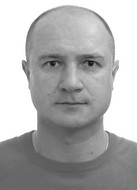Modern peak-tests to rate working capacity in football
Фотографии:
ˑ:
PhD, Associate Professor A.V. Antipov1
PhD, Associate Professor V.V. Presnyakov2
Dr.Hab., Professor, Honorary Figure of Russian Higher Education V.P. Guba3
1Moscow State Regional University, Moscow
2Military Academy of Army Air Defence of the Armed Forces of the Russian Federation, Smolensk
3Smolensk State University, Smolensk
Modern football requires high working capacity being developed in the players so they could keep the highest game pace with no detriment to the performance quality and efficiency. The physical working capacity of junior players shall be rated by the coach on a real-time basis to effectively build up and manage the sport form of the players in the long-term training process. The article analyzes benefits of the modern peak-tests of the physical working capacity in football.
The study shows that the modern peak-tests reasonably applied in the training process make it possible to objectively rate the physical working capacity in football, with the test rates convertible in the qualitative working capacity figures (MPK); and with the run distance rates applied to effectively assess and forecast the individual functionality resource.
Keywords: football, physical working capacity, method, control, peak-test.
References
- Golomazov S.V., Denisenkov A.S. Vozrastnaya dinamika pokazateley fizicheskoy i tekhnicheskoy podgotovlennosti futbolistov 11-16 let. Metodicheskaya razrabotka dlya studentov spetsializatsii «Futbol» [Age-related dynamics of physical and technical fitness indicators of 11 to 16 year old football players. Tutorial for students majoring in footall]. Moscow: RSUPESYT publ., 2005, 24 p.
- Guba V.P., Shamardin A.A. Kompleksny kontrol integralnoy funktsionalnoy podgotovlennosti futbolistov [Integrated control of integral functional fitness of footballers]. Moscow: Sovetsky sport publ., 2015, 284 p.
- Guba V.P., Senkina G.E. Matematicheskie metody v pedagogicheskoy teorii i praktike (izmereniya, vychisleniya, metody matematicheskogo modelirovaniya i statistiki) [Mathematical methods in theory and practice of pedagogics (measurements, calculations, methods of mathematical modeling and statistics)]. Moscow: Print-Ekspress publ., 2011, 270 p.
- Guba V.P., Stula A. Metodologiya podgotovki yunykh futbolistov. Uchebno-metod. posobie [Methodology for training of junior football players]. Moscow: Chelovek publ., 2015, 184 p.
- Guba V.P., Presnyakov V.V. Metody matematicheskoy obrabotki rezultatov sportivno-pedagogicheskikh issledovaniy. Uchebno-metod. posobie [Methods of mathematical processing of sports pedagogical research data. Teaching aid]. Moscow: Chelovek publ., 2015, 289 p.
- Guba V.P., Leksakov A.V. Teoriya i metodika futbola. Uchebnik [Theory and methodology of football. Textbook]. Moscow: Sovetsky sport publ., 2013, 536 p.
- Guba V.P., Skripko A., Stula A. Testirovanie i kontrol podgotovlennosti futbolistov [Testing and monitoring of fitness in footballers]. Moscow: Sport publ., 2016, 168 p.
- Iordanskaya F.A. Diagnostika funktsionalnoy podgotovlennosti yunykh sportsmenov raznogo vozrasta i pola. Metod. posobie [Diagnostics of functional fitness of junior athletes of different age and sex.]. Moscow, 1993, 112 p.
- Guba V.P., Kvashuk P.V., Krasnoshchekov V.V., Ezhov P.F., Blinov V.A. Futbol: primernaya programma dlya detsko-yunosheskikh sportivnykh shkol, spetsializirovannykh detsko-yunosheskih shkol olimpiyskogo rezerva [Football: sample program for children's and youth sport schools, specialized children's and youth schools of Olympic reserve]. Moscow: Sovetsky sport publ., 2010, 128 p.




 Журнал "THEORY AND PRACTICE
Журнал "THEORY AND PRACTICE